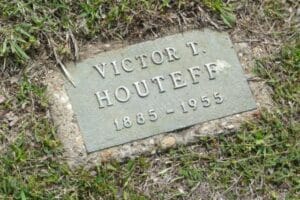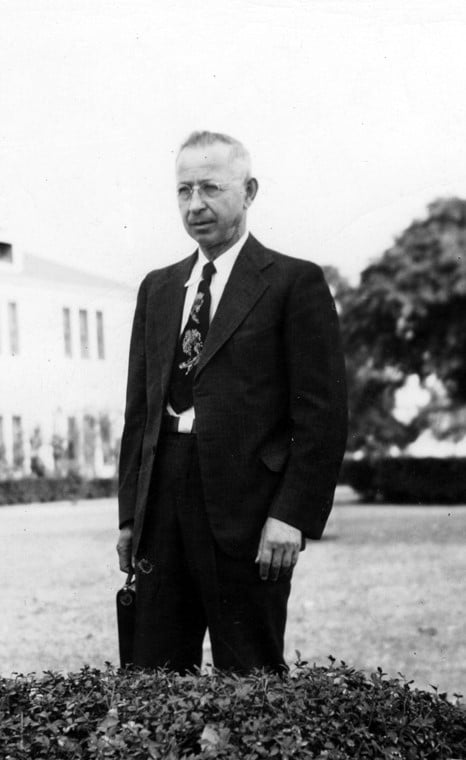 To truly understand Davidian Seventh-day Adventists and their struggles, one must burro into a mine laden with exceptional fortitude and a people of resilience. It is a narrative of the human spirit and that enigma of enigmas—faith. Fasten your seat belts; you are in for a ride.
To truly understand Davidian Seventh-day Adventists and their struggles, one must burro into a mine laden with exceptional fortitude and a people of resilience. It is a narrative of the human spirit and that enigma of enigmas—faith. Fasten your seat belts; you are in for a ride.
Our journey begins in a hamlet called Raicovo, nestled in the Rhodope Mountains of southwestern Bulgaria. There, March 2, 1885, Victor Tasho Houteff was born. As Father and Mother Houteff cuddled that bundle of warmth, that newest family addition, they had no inkling of what the future held for their son. That someday he would shake a denomination from center to circumference.
Growing up in a modest household, Victor certainly didn’t suspect his destiny, nor did his three brothers—Nick, Leo, and Theodore, and three sisters—Anna, Marie, and Fimea. That his future held immigration to the United States where that unsuspecting denomination headquartered, was unknown to Victor as he explored the streets of Raicovo. That his brother, Nick would be the only sibling to follow him to the United States was unknown to Victor as the two had played and shared secrets. (Nick would settle in Milwaukee, Wisconsin, and maintain a lifelong close relationship with Victor.) However, these events waited many years and a continent away.
Victor had desired many things as a young man, but the two he had rhapsodized most were to know God and to be wealthy.That need to know God would become his consuming passion, changing his life forever. That need to know God would become his consuming passion, changing his life forever. While living in Bulgaria, he had joined the Greek Orthodox church. There, he and others would be accused of conspiracy against the government.
 The problem started when Victor and a cousin acquired their uncle’s business selling roses. Sounds simple enough, right? Business had boomed, and they opened a shop in a nearby border town in Turkey. Business soared. When Houteff’s enterprise had begun exporting roses, blasting competition like a searing sandstorm, local dealers screamed, “Foul!” Knowing they piloted a fair and honest business, the Houteffs ignored all threats and covert attempts to ruin them.
The problem started when Victor and a cousin acquired their uncle’s business selling roses. Sounds simple enough, right? Business had boomed, and they opened a shop in a nearby border town in Turkey. Business soared. When Houteff’s enterprise had begun exporting roses, blasting competition like a searing sandstorm, local dealers screamed, “Foul!” Knowing they piloted a fair and honest business, the Houteffs ignored all threats and covert attempts to ruin them.
Victor had learned, from the cradle up, to love God, be honest, work hard, persevere, and success would follow. Houteff’s successful enterprise was a glimpse of his entrepreneurial skills—skills destined to become spiritual gifts as he grew in knowledge. A knowledge that would lead him to build Mt. Carmel Center, Waco, Texas, a training center for Biblical study, Biblical exposition, and publication of Biblical themes. Houteff would accomplish this on a shoestring during the 1930s as the US, and in some respects the world, reeled under the great depression. Built by volunteer labor, it would be sustained by members’ free-will gifts. Its stately buildings would house up to 125 and grace a lush campus. Waco businessmen would be impressed favorably, unlike the businessmen in that Turkish bordertown. Houteff believed his success was owed to God.
In 1948 he stated, “when we moved our offices from California to Texas, where we had neither friend nor believer in the message, the church elders were glad, and thought our work would them die out for sure. It never the less grew more than before, although this took place in the midst of the depression, in 1935, while hundreds and thousands of businesses were going bankrupt, and while well-to-do men were becoming poor. Yet we who started out with nothing, grew and prospered. We, moreover, never took collections in any of our meetings anywhere and never made any calls for money. This holds good still. Then, too, our free literature that goes out week by week, and amounts to hundreds and thousands of dollars week after week, and year after year, besides the cost of building the institution.”
During earlier years in Bulgaria, Victor’s future had glowed with promise. Partner in a thriving business at age twenty, his dream of wealth had hung like ripe fruits read for picking. Soon thundering threats from the opposition had destroyed all possibility of that fruit harvest. The atmosphere toward him at church had grown cold. His fellow deacons and church brethren were also his bitterest competition. When they exhausted legal means of destroying the Houteffs’ enterprises, violence erupted.
 The prick of thorns on tender flesh while handling rose stems, Victor had known. The pain piercing his heart as he read the hate laced words scrawled across the front of his store, Victor had never known. The leathery weight of his Bible, during prayer and study, Victor had known. The weight of sorrow he felt when he held the brick that someone had flung through his store window, Victor had never known.
The prick of thorns on tender flesh while handling rose stems, Victor had known. The pain piercing his heart as he read the hate laced words scrawled across the front of his store, Victor had never known. The leathery weight of his Bible, during prayer and study, Victor had known. The weight of sorrow he felt when he held the brick that someone had flung through his store window, Victor had never known.
Chunks of glass crackled under their feet as Victor and his cousin surveyed the ravaged shop. They traced bullet holes in a wall opposite a window. The heavy perfume of roses filled their nostrils, rendering the scene as ludicrous as finding crystal goblets balanced on a trash heap. Who had done such a thing?
Many others depended upon the Houteffs’ enterprises for their livelihoods, what would they do? How would they survive? Victor must have drawn himself up to every inch of his wiry, 5’3″ frame. The roots of his thick, black hair might have bristled with Bulgarian indignation. Bearing his own suffering was one thing. Seeing the suffering of others was too much. This had to stop. Wasn’t the rose market big enough for them all. Couldn’t they compete peacefully; each dealer working hard to please his own customers?
Something must be done. Victor’s faith in God, and his towering sense of right and wrong sent him into deep thought. He grappled with the need for justice, and decided to appeal to his fellow parishioners, the brethren he had grown to love and respect. They would surely reach a fair solution.
Imagine what degree of anguish must have assaulted Victor, as he listened to church prelates, and learned they had sided with his opposition on both sides of the border. How could they think that I had conspired to overthrow the government? He must have thought. How could they believe that I am an enemy of the state? Victor must have felt like a walking target for all their business woes. His membership in good standing, his dedication to God and to the work of the church meant nothing to them.
The bishop of the province, who had sponsored a campaign to discredit and ostracize Victor, turned to him with icy eyes and in a voice encrusted with cruelty axed all hope of justice. We don’t know his exact words. Perhaps they were something like this:
“You’re not welcome here. Your business isn’t welcome here. Get out while you still can. Staying could be suicide.” Whatever the words, the danger was real. The church had a dead bolt on civil and religious power. Whether Victor realized the degree of personal danger is uncertain. Testimony shows he was incensed. (4) He felt compelled to denounce the church’s hypocrisy regardless of who it was.
Few have the courage to stand by their convictions against the high tide of fear, abuse, or ostracism. Victor did. One respected, religious writer has said, “Of all persecution, the hardest to bear is variance in the home, the estrangement of dearest earthly friends.” (5)
In most ways 1907 was like any other year, in other ways it wasn’t. Couples married, babies were born, flowers bloomed, and one morning Victor may have realized he had sold his last rose. Fingers of fear must have clawed at his spine. Thoughts of his family and all the things he’d never do or see again no doubt crashed through his mind. He fled to his father’s home where he sought security. The angry mob knew he would go there seeking safety. At gun point, they warned, threatened, and antagonized his family. Where could he escape their murderous mood? Sooner or later a bullet would end all of his hopes and his existence. More innocent people also faced harm because of him.
It was decided that Victor must leave the country. He must escape to America at once. His Brother Nick helped him secure passage, promising to follow as soon as possible (a promise he kept). He could stay with a cousin in a place called New York City. What a farewell it must have been. Perhaps Father Houteff gave Victor a solid squeeze, attempting to mask the fear that the family would ever see him again.
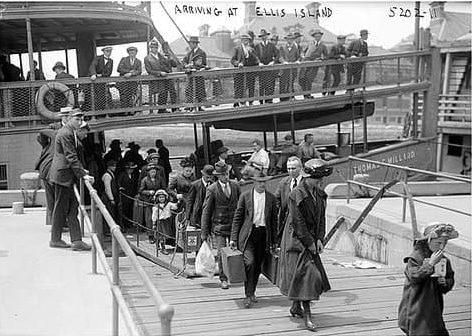
Ellis Island and Lady Liberty with flaming torch greeted Victor and that boatload of immigrants. New sights, sounds, tastes, textures bombarded his senses. He navigated the entry process at a dizzying pace so different from the drone of life in Raicovo. How he missed his family and village. How he longed for a familiar face, voice, language, food. How would he survive? As he entered the streets of that bustling city, following the back of a cousin he barely knew, old hopes of someday being rich seemed far away and impossible.
Having survived the experience, he would later say, “Yes, hundreds and thousands of things may happen, but he that trusts in God and does his work well shall find all these so-called hindrances or mishaps wonderful deliverances, and avenues to success, all carrying out God’s marvelous plans, and God’s way toward your promotion from one great thing to another. When you are in God’s care and in His control never say the Devil did this or that regardless what it be, for he can do nothing except he is allowed to do it. Always give God the credit.
“I came to America, not because I wanted to, but because God wanted me to. And since I knew not my future work, and as God could then no more make me understand than H could at first make Joseph understand his trip to Egypt, I was therefore driven out of the country at the point of a gun as was Moses driven out of Egypt, although I had done nothing to bring trouble upon myself. And who do you suppose led the rebels to storm me out of the country? Non other but the Greek Orthodox bishop of the province! And where do you suppose he sponsored his pursuing campaign? In the church on Sunday morning while in his full regalia and about twenty feet from where I stood!”
“At that time I knew not what my going away from home to such a distant land was about, but now I know as well as Joseph knew that his brethren’s hope to defeat God’s plan for him was but God’s plan to get him down to Egypt. And so rather than to thwart the plan, they really caused the plan to be carried out!” (4, 7, 8)
“Some years ago while in Europe, “Victor wrote on another occasion, “I heard that one of my cousins had left for America.” I then said to myself, ‘poor cousin, I will never leave home and go to live anywhere as far as America for any reason.’ But about that time, I along with others, was falsely accused of conspiracy. It was in the season when the nights were long, and as we put on the lights in our store one morning before daylight, a mob gathered with guns and stones, and stormed the windows. So it was that just a few months after I took pity on my poor cousin’s estrangement from his homeland I found myself in America in the same house with him. It was a great disappointment at first, no not lesser than Joseph’s of old, but what a favor at last explanation point exclamation! God bless the mob!”
Thoughts of starvation and destitution disappeared as Victor hoisted pots and pans fried, baked, sliced and diced as assistant cook in a New York restaurant . Mom’s home cooking it wasn’t, but he had a job. His halting English flavored with a hefty Bulgarian brogue may have enhanced his credibility. Anyone who spoke like that had to be a European chef in waiting, a culinary genius. Whether he was or not, Victor appreciated that skill in others. He grew to understand the relationship between well prepared, wholesome food and good health. Years later he would say, a 10 talented person is a cook. After establishing Mount Carmel Center, he would make sure the cooks wages, those sacrificial secular standards, were among the highest.
In that New York restaurant, Victor Houteff may have sounded like a famous European chef, but he looked like a schoolmaster. Piercing black eyes behind wire – rimmed glasses, slender 5 foot 3 inches build, he usually wore suits in public. Gentle, quiet spoken, he possessed a distinctive laugh, and a generous love for children.
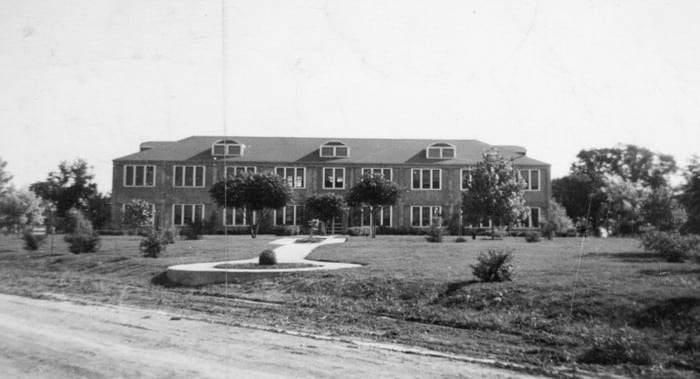
During his years at Mount Carmel Center, the well groomed in public in casual or working moments, he often wore a rumpled, wolf sweater and tattered shoes with the hole in the soul, when asked to change, he would smile but decidedly refuse.
Houteff’s unassuming demeanor almost masked his scholarly sagacity. Even after mastering the English language, his notable brogue remained a strong indicator of his heritage. Upon reviewing Houetff’s first book, one elder of the Protestant denomination he later joined, critically suggested that he have the book proofread by an English teacher. The elder’s objection was not over poor grammar but Houteff’s bluntness, lack of refinement.
Houteff’s reply, “I believe you are sincere in this elder, and I appreciate your admonition; but I also believe you will give earnest attention to what I am about to say, as I will try to explain my position in the fear of the Lord.”
“As I said before, I have nothing in the Shepherd’s rod [the name of his book closing bracket to my knowledge that has no bearing on the 144,000 and a call for reformation. I think if you will study it from that angle, you will see that my statement is correct. This is one of the reasons why we did not leave out any of the topics. Second reason is, the truth of the 144,000 came through these topics to which many have objected and doubtless you perhaps refer to the same things. Now, elder, stop and think how foolish it would be to kill the hen as soon as the chickens are hatched out!”
“I agree with you, elder, if I had my way I would never have written the idea the way it is. I would have put in all the nice things, and left out all the rebuff and condemnation. I would have hired the finest English teacher I could get and have him clothe the thing in good, flowery language; thus making sure that it would find a welcome in every home. But had I done so, it would have contradicted the very principle it stands for, and the tune of its voice would have condemned its profession. In other words, it would have been nondescript lamb like, but speaking like a dragon.” (10) much more will be said about these doctrinal positions and the controversy they raised in Adventism.
For one who arrived on these shores not knowing the language, to master it without formal training better than many English students, was a formidable accomplishment. To write thousands of pages on biblical exposition, having them published and distributed worldwide was remarkable. Houteff did have the assistance of Mr. H. G. Warden in writing his first volume of 255 pages and his second of 304 pages. Mr. M. J. Bingham, a linguist and grammarian, helped him in his later works.
His command of language was not the most outstanding feature of his writing. The concepts of theology that illumined the Bible in unimaginable ways was outstanding and powerful.
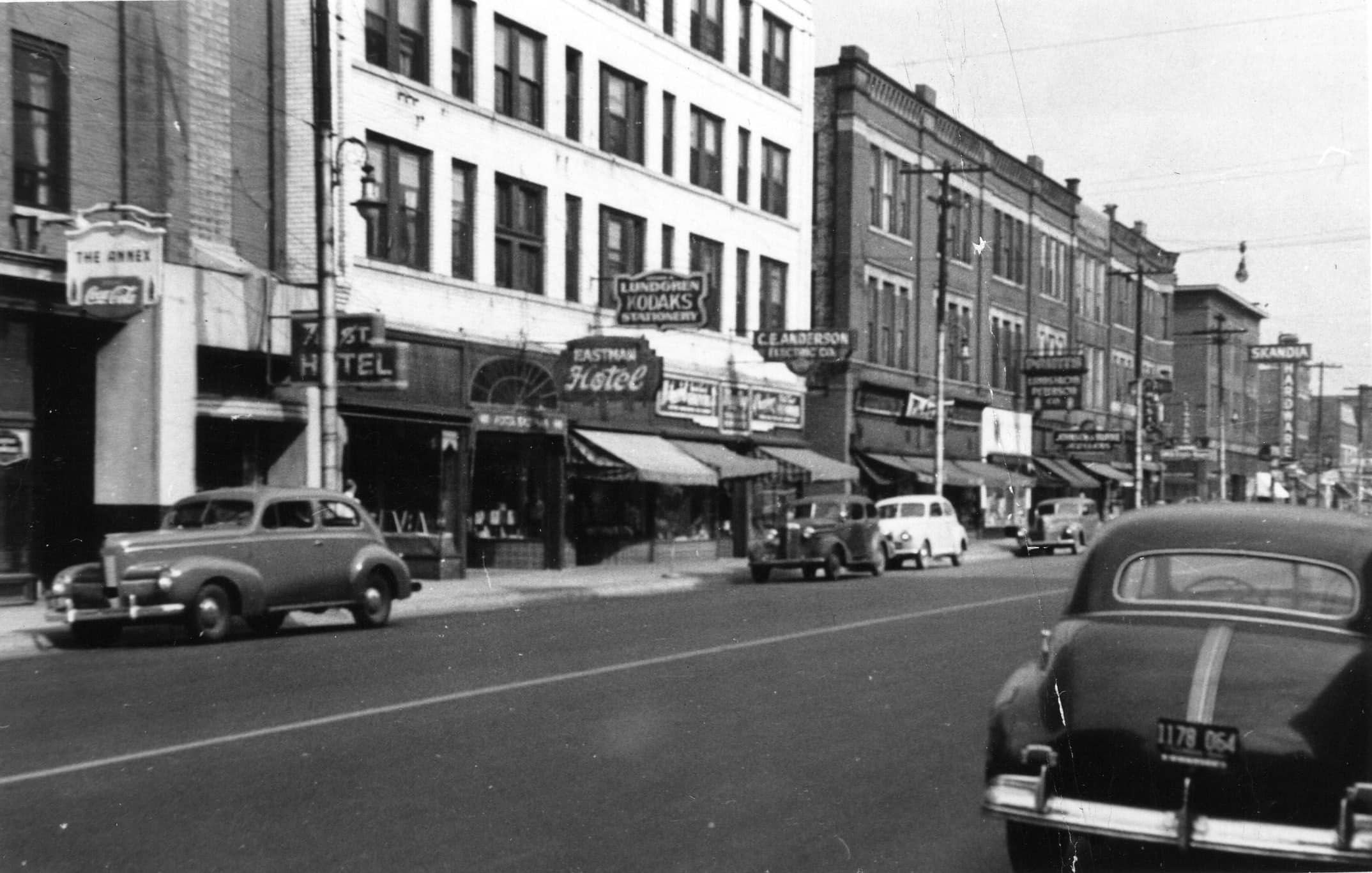
At this juncture though, he was still a Greek Orthodox believer, seeking a new life in a new world, reviving his dream of being wealthy. He was once again to be steered away from his material hopes.His brother, Nick, immigrated to the US and settled down in Milwaukee. Victor decided to join him there.
In 1919, Houteff bought a small hotel in Rockford IL prosperity beckoned. One night while traveling the streets of Rockford, he came upon a tent meeting sponsored by the 7th day Adventists. His intense interest in religion roused. He Took a seat and listened to the speaker. He returned night after night and became thoroughly convinced of the truth of their teachings. He embraced their faith and joined their church.
Evidence suggests that church members stayed at his hotel, checking in early Friday, leaving early Sunday. Compelled by conviction, after becoming a 7th day Adventist, he would close the hotel on Sabbath’s. (For he was a faithful, conscientious believer, perhaps more dedicated to adventism than he had been to Greek Orthodoxy). Convinced that this was the truth, he diligently supported the church and practiced his beliefs. It Filled his hungry soul. He placed all in God’s hands willing to do whatever it took to remain true to him.
Regardless of the sacrifice Houteff cherished this experience. Christ was now real to him, and he believed that what he had accepted were the words of his lord unfolded his renouncing eastern Orthodoxy and embracing Adventism marked another important event in his life. Like fleeing Bulgaria, it would lead him down a road of more life changes than he could imagine.
Although his desire to know God and his word was coming to full view, his hope of being wealthy was again fading. Instead, a life of poverty towered before him barricading all of his material plans. Confirming this vision of failure and poverty, church members themselves were poor. He observed, “they were at the time meeting in a rented hall, not too attractive for church. The people appeared to be very poor. Aside from the preacher I was the only one that was driving a car and he had a worn out Ford that I would not have given a dollar for it if I had to drive it.
“Imagine now,” continues Houteff, “what went through my mind, and you may know that I joined the church only for truth’s sake. Indeed, I had no other encouragement. My hopes of getting rich someday became a nightmare of getting poorer. Yes, the devil gave me as good a picture of poverty as he gave the Lord a picture of the glory of the kingdoms. I nevertheless resolved to stay by the truth I had learned regardless what happened.
“The time came that I sold the hotel and accidentally got into a grocery business. After a time I found that I did not want to be in it, and I sold it at a loss. Then that dark and gloomy picture of coming poverty enlarged itself a hundredfold, but I did my best to keep happy in the Lord.” (7)
After disposing of the grocery store, Houteff left the city and six months later went to Los Angeles, California, life wouldn’t get any easier. He fell extremely ill, and one of the retired church pastors referred him to the Glendale Sanitarium (now Glendale Hospital). In the 1920s it was operated by the church. An active member in good and regular standing, Houteff anticipated prime service and lower rates. Expected a church-owned and operated facility to treat all patrons with love, courtesy, and professionalism, and certainly for church members. He was in for a rude awakening.
When we got to the desk, and after the minister told him all he had to say, the sanitarium clerk asked me what kind of a deposit I could leave for admission. I said, “A check.” (It somewhat surprised me, for I had been in a hospital before but was never asked to pay anything in advance, — no, not even when I was dismissed. They sent me the bill by mail.) When he saw that the check was drawn on an Illinois bank, I had to explain that I was somewhat new in the west and had not yet transferred my bank account. The clerk reluctantly took the check, and I was assigned to a room, and politely told that I had to wait for the doctor until he should come around.
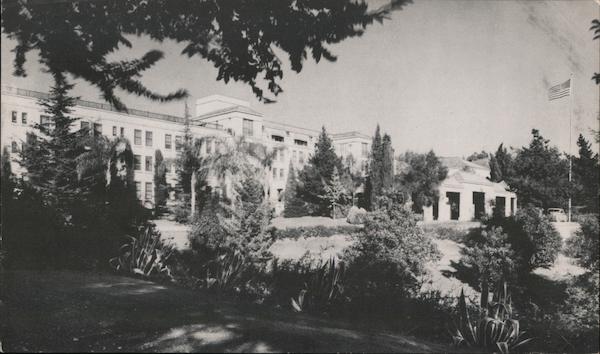
Well, I waited all that day, but not a soul came in! In the evening, as sick as I was, I put on my clothes and went for supper into the dining room. Then I was told that the doctor was away, but he would see me just as soon as he came back. For four days this went on, and not a soul came into my room! I could have died and no one would have known it until perhaps days after. I suppose they had to get the money from the bank and find out if my credit was good before they would give me service!
Finally on the fourth day, the Sanitarium chaplain came with apologies for his delay to see me. “If I had known that you were a Seventh-day Adventist,” he explained, “I would have seen you sooner.” I was not expecting him, though, and it did not make much difference with me. But I said to myself, “If you did not know what I was, you should have come sooner.”
At last the doctor came and after a thorough examination, I was told that I was a very sick man and had to have a special day and night nurse to look after me and to give me the hydrotherapy treatments. With my consent a student nurse came in. But when the shadows of evening stretched over the sky, the nurse told me that they were short of special nurses, and so he himself was to wait on me all through the night if I let him move his cot into my room. All the time I was there, though, he never once got up at night to wait on me.
And thus I had a private day and night nurse, and in the end I was charged 50 cents an hour — six dollars daily for him to wait on me during the day time, and six dollars nightly for sleeping with me in the room! This along with the additional charges was a heavy drain on my already dwindling savings. And the picture of growing broke and of staying poor grew larger and larger in my own mind, but I recovered from my illness, and was thankful.
This Sanitarium incident, though, produced another disappointing picture in my mind. Is that Sanitarium God’s place for His sick people? I asked myself. Is this people really God’s people? The answer that came to these question was this: the Sanitarium is God’s, and the church is God’s, but the people that are running them are reactionaries, they are the modern priests, scribes and Pharisees, that there is a need for more Samaritans among them. This is where God’s Truth is, though, and God helping me, I said, I shall stay with it. Yes, God did help me, I kept the faith, complained about nothing and stayed in the church with as good record as any.
After I left the hospital, however, I was weak and my bank account was almost depleted. It appeared to me, too, that there was nothing that I could get into with the Sabbath off, that I would fall to the mercy of some charity, or else starve. Moreover, for several months I had sent neither tithes nor my pledges of offerings to the church in the middle west, consequently I owed something like $75. I thought then that if I should fail to pay this debt now while I had enough to pay it, I could never again get that much money together and it would have to stay unpaid forever. Better get broke now, I said, and be free of debt than to get broke later and to be a debtor forever.
My bank account, I figured, was just a little over my debt. When I wrote a check for the whole balance and sent it to the church in the middle west, I was left with $3.50 in my pocket, and with no prospect of a job. Then I wrote to the bank in the middle west that I was closing my account and that they should send the cancelled checks and other papers to my address in California.
He had reached the bottom. Nearly Penniless. His material hopes appeared dashed to pieces. His health was apparently gone, and like the Greek Orthodox Church, the Adventist Church had bitterly disappointed him. It is often when men reach their lowest ebb, their extemity, that they find a hope beyond understanding. When grief holds the heart with an iron grip; where nothing seems desirable in life; when one’s dreams and dearest aspirations have shattered, then appears the working of more than normal power, arms that lift the soul above earthly trials. When men grasp this aid they really touch God. This is what Houteff believed he did – he touched God. It was then that he gripped, what he would term, omnipotence. When men have such an experience that they can become truly great- they can change the world. In life or in death, their example affects thousands or millions doing what seems to be more than human effort.
Why did they treat him with such neglect? Was it simply financial – he’s not having an account with a local bank? Did they need to secure funds from the Illinois bank, before starting treatment? Was it because he spoke with the foreign accent? Whatever the reason, nothing seemed to justify their supineness. Nevertheless evidence shows that this experience did not embitter Houteff toward the church or anyone. He was certainly disappointed and displeased, but bitter? No! He saw inconsistencies, faults, and failings; but this was not the primary reason for his eventual call for reformation within the church. Instead as his own testimony verified, he determined to stay with the church because he believed it was God’s special instrument to represent his truth for the time. This Houteff held with all confidence until his death.
Looking back on the experience, Houteff said, “No, there is neither beast nor man that can take your life or cheat you of promotion if you do God’s bidding, if you know that He Who keepeth Israel neither sleeps nor slumbers (Ps. 121:3, 4); that He knows all about you, my friends, every moment of the day and of the night; that He takes notice even of the hairs that fall from your heads; that whatever befalls you is but God’s own will for your own good. I say, if you know and believe that He is God and the Keeper of your bodies and souls, then regardless what befalls you, you will be happy in it and give God the credit for it, not murmuring, but glorying even in your trials and afflictions.
At this point of my life, though, the table turned around as much as it turned with Abraham after he had done all but slay his son Isaac on the altar of God. Just a few days after I had written to the bank I heard from them, and to my great surprise they had inclosed a check for about $350 as my final balance! I never discovered how it happened.
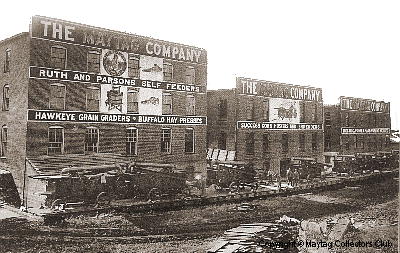
In the meantime I got a job in a washing machine agency, and just then the Seventh-day Adventists were having their 1923 camp meeting in Los Angeles. And so I decided to attend and between meetings to try to sell Maytag washers in the neighborhood. And what do you suppose? I sold a washer a day and a few vacuum cleaners on the side. This went on all the while the camp lasted, and my first check from the company was about $425. But this was not all, just then another surprise overtook me. Some years before, I had bought stock which I had made up my mind was worthless, but to my surprise I received a letter in which the corporation inquired if I would like to sell it back to them, and the price they offered was more than double the price which I had paid! Here I had a real experience all of my own as promised in Malachi 3:10.
Moreover, this Maytag agency was new, and when I went to work for them, they had but a small place. All the while I worked for them, though, they prospered and grew as did Laban while Jacob worked for him. In three years’ time they opened branch offices all over the vicinity of Los Angeles, and then erected a building of their own which looked like a bank inside and out, one block deep and something like sixty feet wide. As to how their prosperity ended I will tell you a little later.
After having great success selling washing machines, he began experimenting with selling health sweets. In fact, he nearly stopped selling washing machines and lodged full time into selling health candies plus canvassing for the church selling S.D.A books and periodicals.
Houteff’s faith strengthened in the adventist message. His zeal and love for God in the church sword. He subjected his entire life into his beliefs., he kept the Sabbath (Saturday). Seventh Day Adventists believe in the biblical Sabbath, that secular activities should be set aside during Sabbath hours (sunset Friday sunset Saturday). Activities are only engaged in which cannot be performed on other days; or which are of necessity; or which are religious in nature. Adventists believe, according to Scripture, that the Sabbath is still binding upon all today, and God never changed it. It is part of the 10 Commandments God wrote with his own finger and gave to Moses.
Hence, no matter the cost, or risk, or personal sacrifice one must obey God’s word. Not all adventists are faithful to this and other standards, but Houteff certainly was. He, like all committed believers, believed God would always provide for their needs when they placed his work or his wishes above their own. Believe that God loves them and though tests and trials may come, he had vowed to never forsake them- a lesson brought home to Houteff through several experiences. None more potent, perhaps, than those of his life.
My unexpected success in selling washing machines, of course, was used as a boost pump to the other salesmen, and the sales manager became very inquisitive about my religion. The last I talked with him he said to me: “Houteff, it must be wonderful to believe as you do, but you know I could never be a Seventh-day Adventist.” I then asked why could he not be, and he replied: “Because if I begin to keep the Sabbath as you do, I will lose my job.”
I said, “It is better to lose your job than to lose your life.” And the conversation ended. But the next time I went into the office I saw a wreath hanging on the door, and everything seemed to be upset. Then I was told that Mr. Harney, the sales manager, had suddenly taken sick the night before and died early that morning.
About that time the head bookkeeper, too, became interested in discussing religion with me. As time went on, I discussed the same I had discussed with Mr. Harney, and at last he, too, said, “Houteff, it must be wonderful to feel as you do, but I could never be a Seventh-day Adventist.”
I said, “Why?”
“Oh, I could not keep the Sabbath and my job, too,” he replied.
“Well,” I said, “it is better to lose your job than to lose your life, Mr. Barber.”
And surely enough, the next time I went into the office, I found everybody talking instead of working! Then I was told that Mr. Barber, the head bookkeeper, was found dead that morning in his room! Believe it or not, but this is what happened with both men after they sold their convictions for the price of a job!
A little later, I thought that I should have something of my own instead of continuing to work for Mr. Sleuter. So I was spending most of my time with experiments on health sweets, and as I then sold a washer only now and then, I was not too popular with the company. And as the company owed me some commissions, I decided to find out why were they held back. After discussing the matter several times with the sales manager he put me off each time with a promise to “see to it.” But one day I pressed the matter harder, and as a result he said, “Houteff, I am tired with this and I don’t care, you can quit.” Next time I went in, I learned that Mr. Lisco, the sales manager, was discharged and that Mr. Foster had taken his post! Mr. Lisco, you see, was the one who had to quit, not I!
I then went to see the new manager about my commissions. He promised to investigate the matter and to let me know the next time I came in. He, though, did the same thing Mr. Lisco did. And when I pressed the matter as hard as I did with Mr. Lisco, he, too, said, “Houteff, I am tired with the thing, and do not care if you quit.” Peculiarly enough, though, the next time I went in, I was told that Mr. Foster, the sales manager, was discharged and was no longer with the company! I still was.
By this time I had created enough business with my health sweets to keep busy and was about to quit altogether. I then went to see Mr. Sleuter himself about the aforementioned commissions, but he received me very coldly, and plainly told me that I had nothing coming! I quit. But in the space of less than about six months, I think it was, he lost the agency and another man took over the company! This is the way his prosperity ended.
You may or may not agree with his assessment of the situation, but let no one think that Houteff was fanatical or imbalanced in his religious experience or practice. His life’s record made that point clear. Actually, he despised and untiringly rebuked every species of fanaticism, that plague of nearly every movement and scourge of every attempt at proper, beneficial reform.
On the other hand, he believed fervently that God was real, a personable, loving, all powerful being, a heavenly father who covered every facet of his children’s existence. Disbelief took on new meaning one Wednesday afternoon when he crossed a busy intersection in downtown Los Angeles. Describing the incident, he wrote the following.
One Wednesday I drove to the business section of Los Angeles. Having finished my business quite late in the afternoon, and while walking across a street, I saw a woman driving toward me. But as I was almost to the middle of the street, I saw no danger for there was plenty of room for her to drive by. She nevertheless turned her car right square into me. Yes, she struck me from my left, and being overly excited she could not stop her car before she reached the middle of the block. And so she kept on going from the corner of the street to the middle of the alley. What happened to me when the car struck me? Did it lay me flat on the street, and did it run over me? No, this did not happen because something greater took place:
An unseen hand carried me on ahead of the car, lightly sliding my feet on the pavement with my right side ahead, and my left side against the car’s radiator! After having made about half the distance before the car stopped, something seated me on the bumper of the car, and I put my left arm around the car’s left headlight! Then I said to myself, “Now lady you can keep on going if that is the best you can do.” When she stopped, I put my feet on the ground and stepped away from the car.
Just then I discovered that the pencil I had in my coat pocket had broken into half a dozen pieces from the impact, but my ribs were untouched! By that time the car and I were surrounded with people, and three policemen searching for the man that got run over. But as they found no one lying on the street, or pinned under the car, I told them that it was I who had been run over! They wanted to take me to the hospital, and when I told them that I was not hurt, I heard one say, “He must be hurt but is too excited and does not know his condition.”
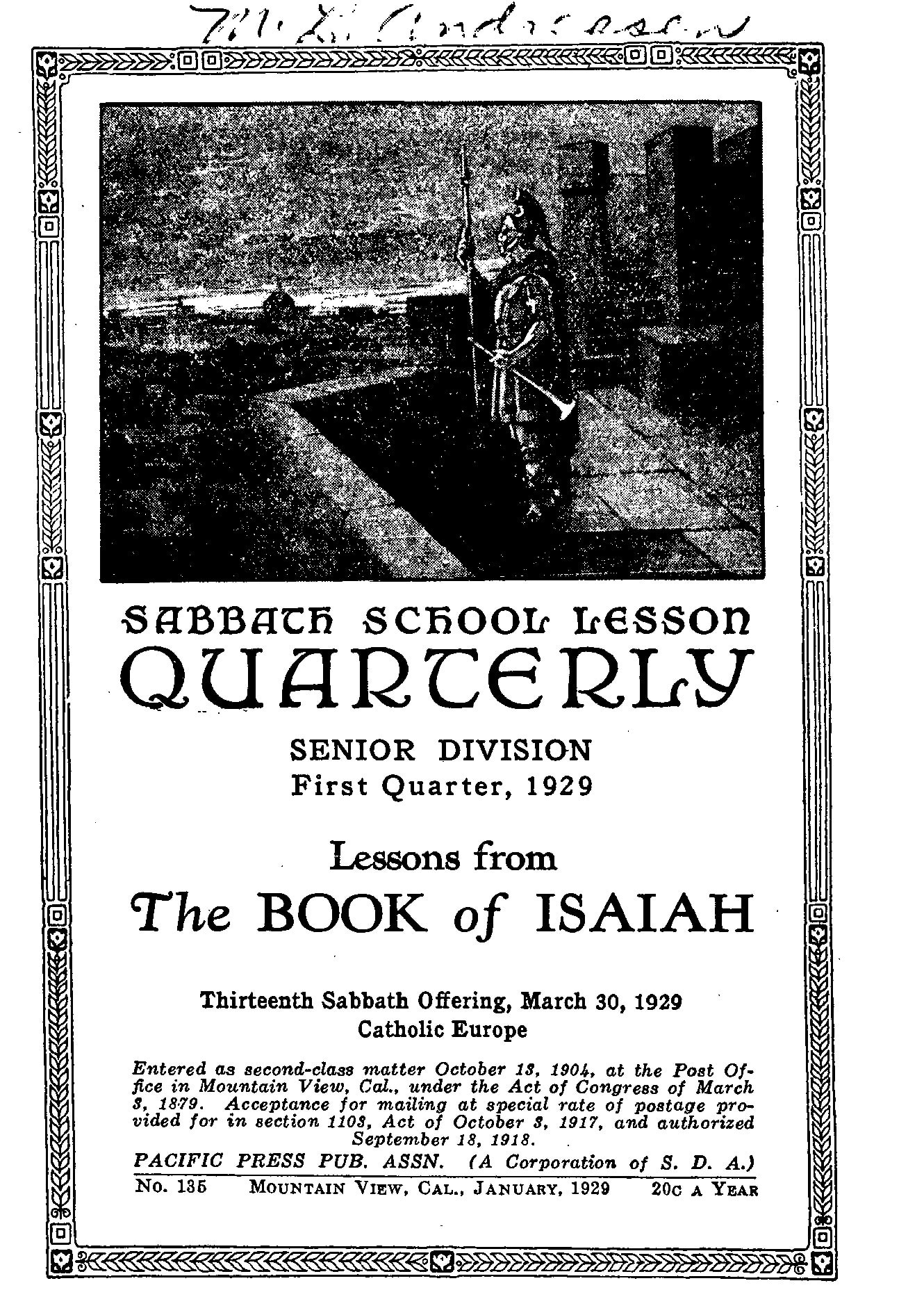
It was about this time, 1928 and 1929, when a series of denominational lesson studies were formulated from the Old Testament Book of Isaiah. The lessons were based upon the expositions of a prominent SDA church leader, Capital M. L. Percent, and his book, “Isaiah the gospel prophet. Close this book became the source of the lessons interpretation of Isaiah. The book and lessons were sanctioned and widely accepted by the 7th Day Adventist Church’s General Conference in Saba School departments worldwide. New life presented traditional, Orthodox, biblical Adventist theology, it presented new concepts, broader interpretations of the book of Isaiah. Isaiah prophecies speak of a glorious ending for the Saints. Build a church filled with the glory of Heaven, and righteousness shining forth in a world of darkness and confusion. They spread hope and peace to all who desire the Kingdom of the Messiah. Andrews in emphasized that this would begin prior to the return of Christ. Traditional emphasis normally placed this beginning after the return of Christ.
These broader, clear reviews of Isaiah’s writings had deep effects upon many minds and Christian experiences., none so deep as Houteff’s. As a Sabbath school teacher, he studied and prepared these lessons for his class, deeply impressed by the light flooding his mind as he contemplated these glorious themes. Although God’s people would face “a time of trouble” and persecution, Houteff was convinced that the gospel dispensation would end in greater triumph than when it began. Not that the early church’s experience was short of grandeur by any means. Record shows marvelous miracles, wildfire growth, burning throughout the Roman Empire. A force that for centuries Rome tried to snuff out by killing thousands upon thousands of martyrs. But Rome failed to destroy Christianity.
Isaiah’s prophecies seemed to portray a church that would not taste death. In the midst of persecution, God’s people filled with his goodness, faith, and love would go forth as a mighty, “bulletproof” army, proclaiming the gospel. As a result millions would quickly commit their lives to God and embrace the gospel. All of this was preadvent as opposed to the traditional theology of the church’s persecution hiding in caves and hills where few (144,000) would remain alive. Houteff was convinced that the 144,000 were only the first portion of souls in the great harvest. Instead the final gospel harvests would include a great multitude – millions and millions from every nation, tongue, and people. (Revelation. 9)
Scripture animated his mind, and soul. Portraitures not only rooted in Isaiah, but also in the writings of nearly all the ancient seers. Finally there would be a people on this earth who would perfectly represent God, who would love Jesus, who would love as Jesus loved, who would be true and faithful. A people who cannot be bribed, adulated or intimidated into wrong. They would rather perish than violate their conscience- pure examples of true Christianity. At last, all honest, truth – seekers would recognize Christ’s character shining in his people, embraced the gospel, accept God personally, thereby swelling the ranks of God’s household, ushering in the second coming of Christ foretold in the New Testament. There was no doubt in Houteff’s mind that this was God’s plan.
In order for these events to occur, the sad state which then permeated the denomination had to cease.
The denomination needed a revival and reformation a reorganization. There is no question that, in the late 20s and 30s, the Seventh day Adventist denomination slid from many of its earlier standards. The church at large had adopted customs and practices that were leading it down a path of lost peculiarity, lost simplicity of faith.
Houteff was captivated. More and more his heart became ambulant. The lessons became fuller, richer, deeper. The Bible became a new book. Its pages flowered with new revelations – truth, he was convinced, needed by his church, needed by all Christendom. Houteff felt as though he was being guided and directed by a heavily influenced, a power beyond earthly intelligence, revealing scripture in a light never before seen. Issues of life and death were made plain.
He knew then that somehow he was privileged to be a chosen channel for a special “end- time” message. A message of hope yet of Stern rebuke. A message sublime and sweet, yet it would bring bitter opposition. A message demanding change and repentance, yet it would encapsule and crystallize the dreams and visions of the ancients.
Could he refuse to proclaim it? Could he sit in silence and ignore the heavenly call? He was not a pastor or conference official. He was not formally trained in theology, to preach or teach. He was a respected Sabbath – school teacher and an assistant Sabbath – school superintendent, yet, he was only a lay member. Why would they listen to him?
But, Houteff could not refuse the call. The message he felt was not his but God’s, and he was constrained to declare it. Regardless of the cost he would be true to his divine injunction. Many of the prophets were men of humble origin. What of the apostles? Poor, ignorant fishermen, except for a few, they, two, lacked formal education.
Declaring the manner of Paul’s preaching, didn’t the scriptures say, “where is the wise? Where is the scribe? Where is the disputer of this world? Hath not God made foolish the wisdom of this world?”
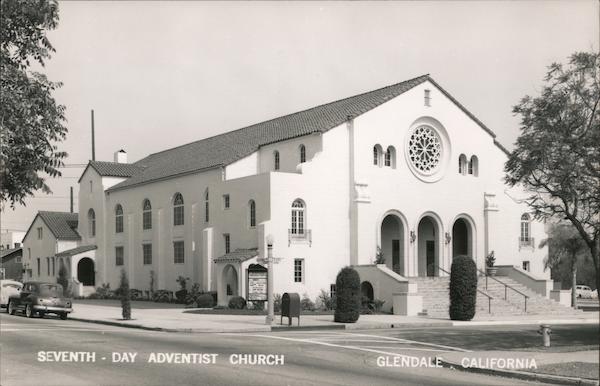
Each Sabbath Houteff taught his Sabbath – school class the insights he had gained on Isaiah, chapters 54 – 66. As news spread of this new illumination, members came, hungry for what some Christians called the “meat of the word,” until who Houteff’s Class grew considerably. Out of a 200 member church, about 60 joined his class. That’s nearly triple standard membership for an adult class.
Soon it was suggested that Houteff hold an afternoon class in the church instead of a morning class next he was requested to move to a smaller class. It was said that the young people needed the auditorium in the afternoon. The smaller classrooms were too small for the burgeoning class. As the local leadership became increasingly disturbed about Houteff’s phenomenal teaching success, they determined to halt his activities, brick – wall his activities and draw attention back to themselves. On one pretext or another they stopped Houteff’s class from meeting on church grounds.
However one class member, Mrs. C. E. Charboneau, owner of a large house across the street, welcomed the class. The Charboneaus became pioneers of the Davidian movement and among the 12 that founded the original Mount Carmel Center, where a street was named after them. As membership swelled, subtle opposition became more blatant. Church leaders denounced the special meetings and ostracized attendees. Fear of persecution stopped some. Curiosity led others to fill their ranks. Overflow listened from outside through open windows. The church was in an uproar and divided – some for the meetings, some against.
About this time Houteff wrote, “next they forbade us to attend their church services, and they began to disbelieve those who still wanted to attend our meetings. They tried to deport me, too, but failed. Then they endeavored to get a court order against any of us going to the church on Sabbath, but lost out. Once they called the police to have me arrested on false charges that I was disturbing the meetings, but after the officers in the police station heard my story and the deacons charges against me, he commanded the two policemen who brought us to the station to put us in their car again, and to take us right back to the church where they picked me up.
“After this the elders endeavored to put me in an insane asylum. The “city manager” of Glendale, himself a 7th day Adventist, had come to this church that Sabbath morning to lay down the charges and to see me carried away and locked in the asylum. After talking with me for a few minutes, though, the officer did nothing but to tell me that he would not bother me again. Then the 200 pound city manager felt smaller than my 135 pound weight.
“ They did all these unbecoming things and many others; besides, they talked and preached against me. And though I had no one but the Lord to defend me at any time, yet in all these the victory was mine!”
The message spread. Adventist churches throughout the Los Angeles area heard about the unique studies. To some minds it was clear that the Lord had sent a message to his people. To others, he was a devil. To more than a few, Houteff was the avenue by which a flood of heavenly light had illumined their souls. Believers were not looking to follow or idolize a man. In fact, Houteff, himself, constantly steered people from every species of flattery or praise, something he did throughout his entire ministry.
If one wanted a fetish, there were many human wonders in the church to idolize- and brilliant oritaters, men of renowned, men of superior intellect and talent. Why choose a man who apparently had none of the above? Houteff was neither tall, commanding or particularly charismatic. What then drew people to his meetings and to his message? Curiosity? Novelty? Excitement perhaps, for some, it may have been so at first. But what kept them listening, studying, returning for more when the gales of persecution blew and opposition swirled around adherents? The compulsion was the message. Testimonies of adherents say that the overwhelming evidence constrained you if you believed the Bible, believed in the inspired comments of the church’s primary founder, accepted the fundamental teachings of the 7th day Adventists, desired to know and to love plain truth, you were compelled to acknowledge divine inspiration in this message. You’d recognize its author, not a little man from the Rhodope Mountains of Bulgaria, But the author of authors, the God of all. Even an atheist wouldn’t take long to recognize that this was no ordinary man. Whether you appealed or disagreed his message affected you, stirred you.
Determined to squelch what they viewed as the lunatic ravings of a disgruntled member, church authoritarians, without official investigation, pronounced the message erroneous, excommunicating any of its supporters.
In June, 1930, Houteff compiled the early phase of his message in manuscript form and title it “the Shepherd’s Rod.” He placed a total of 33 hectograph copies with various SDA leaders at the General Conference Committee held in San Francisco. He asked them to carefully investigate its contents. The recipients Promised to do so and make their findings known to him by letter or in person. The title Shepherd’s rod would later be used to identify believers as well as the message. To denominational leaders, its adherence were “offshoots”, “a lunatic fringe”. The message was heretical, a threat to unity. While they hoped the whole issue would go away, others risked estrangement and accepted the message with remarkable glee.
Houteff pointed out that the name “Shepherd’s rod,” evolved from what he cited as a providential coincidence. In the Old Testament, the book of Micah refers to a “rod” that speaks and is capable of being heard. Micah 6 verse 9 the Lord’s voice crieth unto the city and the man of wisdom shall see thy name hear ye the rod, and who hath appointed it.
Referring to this, he stated, “the Lord declares that his voice is crying to the city (to the church) and that the men of wisdom shall see the name, and shall hear the rod and him who hath appointed it.
“manifestly, this rod is capable of speaking and of being heard, thus the command “hear ye the rod.” So far as we know, the only rod that has ever spoken is “the Shepherd’s rod.” moreover, it was not the results of any studious searching of the Bible that the book was so named, the author was not familiar with this scripture, nor did he have any understanding of the book of Micah at the time the title “shepherd’s rod” was given to the book.
The term “Shepherd’s rod,” itself, carried the heart of the message. The ancient Shepherd was a patient, tender, long suffering caretaker of his sheep, creatures prone to stray, to get trapped in thickets, to get lost, or fall prey to wild beasts. The Shepherd used his staff (rod closed parentheses to guide strays back to the safe path, or to ward off attackers. The Psalmist, David, used, would weave come to know as the 23rd Psalm, to express God as the Divine Shepherd: “thy rod and thy staff they comfort me. Quote
Hebrew shepherds had their sheep past under the rod in counting the tithe, that portion which belonged to the Lord. Old Testament shows that Moses used a miracle – working shepherd’s rod to deliver ancient Israel from Egyptian bondage and part the Red Sea. The rod, then, becomes a symbol of comfort, power, and deliverance. Although all promised to reply, only two of the 33 conference officials who received copies of the manuscript responded. F. C. Gilbert was one. In his brief letter of June 26, 1930 to Houteff he confesses that he didn’t make a thorough study of the manuscript. He avoided addressing main points, but focused his unfavorable assessment on minor points.
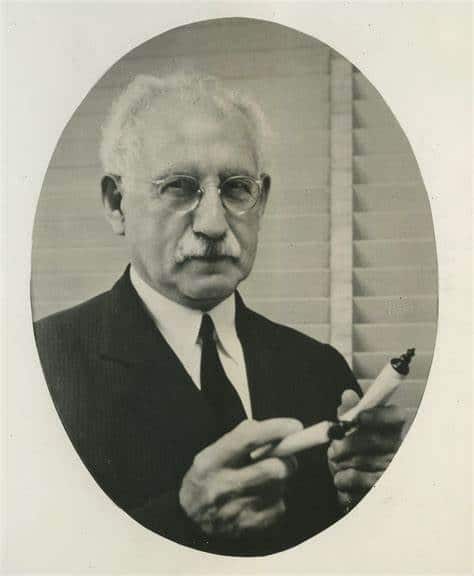
Negative statements Gilbert made regarding the new message were his personal opinion. Yet, many ministers gave the impression that Gilbert spoke for the general conference committee. If Elder Gilbert saw no validity in the message, then many church members fought free to disregard it altogether. Who to questioned the wisdom in this.“have the people of behold denomination suscommed to the brain of one man? His elder Gilbert to dictate from now on as to what shall and what shall not be brought before God’s people? If so, then think in what fearful jeopardy is our eternal welfare!” the manuscript touched several biblical topics. However, its essential theme was the 144,000 of the apocalyptic book, revelation chapter 7 relative to today’s church. Elder Gilbert did not tackle that subject at all.
Although most church officials ignored the new message, some studied it in depth. Unlike F. C. Gilbert, E. T. Wilson, Conference President for the Carolinas, investigated the message thoroughly. In some respects his response, in a December 15th, 1933 letter to Houteff mirrored emotions of many who would later embrace the controversial teachings.
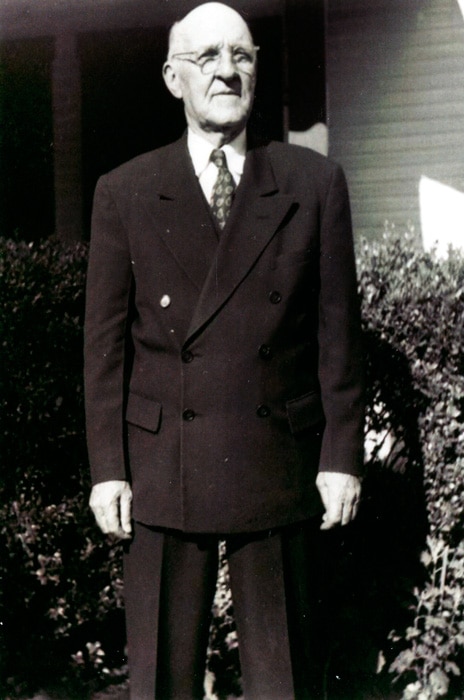
“ I might say that when I first looked at the “Shepherd’s rod,” the very name seemed to prejudice me, and I came near tearing it up several times before I really read it, but each time, when I was about to destroy the book, the thought would come to me that this is against my principle, and I would lay the book away again. When I finally did read it I was startled, and many times I would cry out to God to forgive me for my sins as a minister, if he were really speaking to me through this little volume, and when I finished it, I was convinced that I was reading no ordinary book, but being very cautious about seeming error, I began the second reading, making comparison with the Bible and the testimonies [considered to be inspired commentaries on the Bible to capital SDA ‘s closing parenthesis closing bracket ] to be sure they were in harmony, but before each reading, I would cry to God to “reveal truth and unmask error,” according to his promise…”
E.T. Wilson became a lifelong devoted advocate of the “Shepherds Rod” and the vice president for the Davidian Association. It was E.T. Wilson who would later on perform Houteff’s marriage in 1937.
W.F. Butterbaugh, MD, a reputed student of the scriptures, and a former teacher in an SDA college, responded to Houteff in a general letter. Undated, addressed, “to whom this may concern,” the letter is believed to have been written in the early 1930s. A following paragraph of which sufficiently shows his impressions.
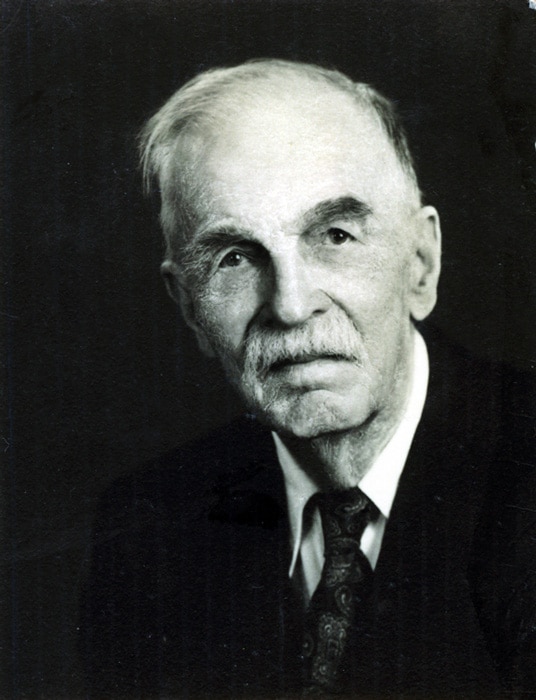
“After a week of careful [group closed bracket study of these sessions daily, proceeded by prayer, all present participating in beseeching the Lord that through his Holy Spirit he might direct in the discovery of truth, and that error, if such there be, might be made manifest, it was mutually agreed upon, that aside from typographical error, and in some cases of incorrect English, also certain historical statements of which we can neither affirm nor deny: and furthermore, it being ascertained that the author had never heretofore been associated with spiritualism in any of its forms, and as every study enlarged by exceeding great light upon thee “Three Angels Messages,” also many vital and controverted points that have been perplexing mysteries were perfectly cleared up, there was left no question of doubt in our minds that these volumes have been prepared under some form of divine enlightenment; and that the time is fully ripe for the unfolding of these truths to a perishing world.”
Thousands of similar letters would be written in subsequent years, and literature distributed in the millions throughout the nomination. A movement was born that would shake Adventism from “center to circumference,” that caused scholarly Americans to scratch their heads. Though small in number, its members were strong in dedication, facing fierce opposition from clergy and laity. Though founded though hounded by hatred, ostracized, and misrepresented, it continued to rise, and to pick the conscience of thousands worldwide.
Today, it survives in steadily growing numbers in north and South America, Africa, Europe, South Pacific, and the Far East but not without first withstanding lions of bulking disillusionment.
On February 5th, 1955, Victor T. Houteff died at the Hillcrest Hospital, Waco, Texas. He believed what many adherents believed then and now, in spite of setbacks, disappointments, opposition, one day the church and the secular world will witness fulfillment of prophecies recorded in scripture. Prophecies elucidated by a series of messages termed the “Shepherd’s Rod” written by a little man from Bulgaria. They will come to find that instead of a “madman,” idealists or a misguided zealot, he was a Prophet without honor.
